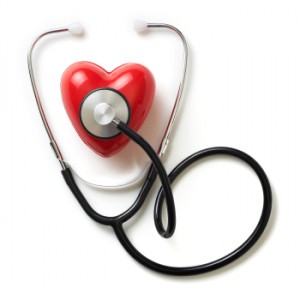 Just a couple of years ago, homocysteine became a household word. Homocysteine is an amino acid that your body uses as part of its metabolism. It’s a byproduct your body makes when it breaks down proteins.
Just a couple of years ago, homocysteine became a household word. Homocysteine is an amino acid that your body uses as part of its metabolism. It’s a byproduct your body makes when it breaks down proteins.
In a normal, healthy person, the body cleans up any excess homocysteine. But if you don’t have the right nutrients available—vitamin B6, B12, and folic acid—then your homocysteine levels begin to climb.
Doctors use a blood test to measure homocysteine. They measure it in micromoles per liter of blood, but that’s neither here or there. You can just look at the number to know how you’re doing.
If your levels get up above nine, then your risk of cardiovascular diseases begins to increase. Your risks rise slowly at first, but by the time your homocysteine reaches 15, you have some serious problems. You are at higher risk of dying from heart disease, and you’re also at a much higher risk of suffering a stroke.
Still, the mainstream medical industry keeps trying to downplay the importance of homocysteine.
Don’t be Fooled—Your Homocysteine Levels DO Matter
Despite efforts to dismiss homocysteine, a review of the evidence shows that it does make a difference. A moderate decrease for someone with levels between nine and 13 won’t yield an impressive decrease in heart disease risk.
But for people with really high homocysteine, it’s a different story.
If your homocysteine levels climb higher than 15, your heart disease risk is four or five times higher than if you had normal levels. Your risk of stroke also increases. Homocysteine levels of just 11 increase stroke risk by 76% compared to someone with levels below nine.
Keep Your Homocysteine Levels Healthy
It’s cynical, but part of the reason that homocysteine doesn’t get the attention it deserves is because there aren’t expensive, fancy drugs to bring it down to healthy levels.
The best way to lower your homocysteine levels is to take more B vitamins. The three specific vitamins that help maintain healthy homocysteine levels are B6, B12, and folic acid. Dietary sources are best, but your multivitamin or B complex vitamin should contain 400 micrograms (mcg) of folic acid, 50 mcg of B12, and 50 milligrams of B6. For the best results, take your vitamins with food.
By maintaining good nutrition and making sure you get enough of these crucial B vitamins, you can keep your homocysteine levels low and reduce your risk of heart disease and stroke.
Stay well,
Mark Rosenberg, M.D.
Photo Credit: helpingyoucare.com
